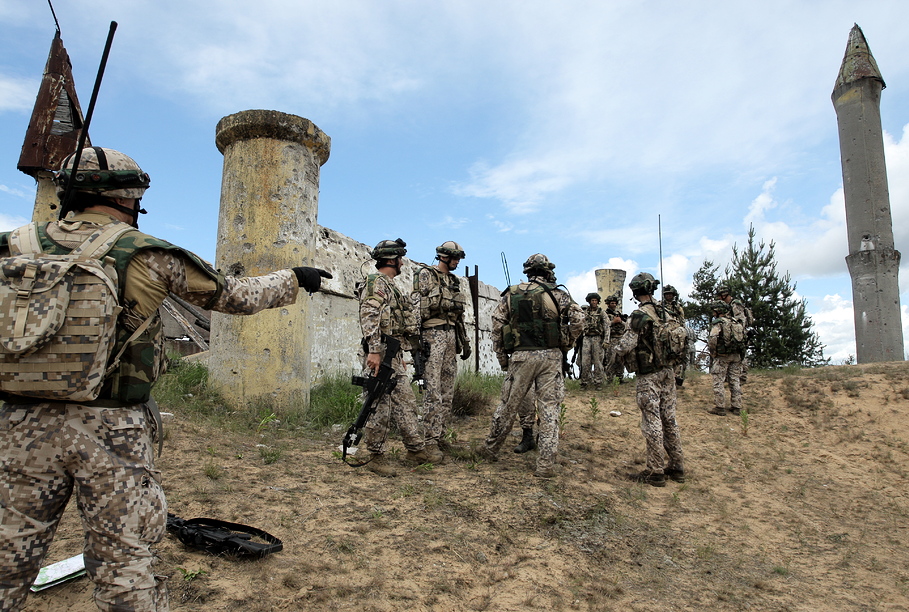Sārts said that state budget funding was already allocated towards the goals for this year, but only a common NATO investment such as that hinted at by German Chancellor Angela Merkel on a visit to Riga Monday would be enough to make the kinds of improvements required.
During her visit Merkel spoke out firmly against the idea of establishing NATO bases in the Baltic, but gave backing to the development of Latvia's "military infrastructure" without going into details.
“From what I gather, Ms.Merkel was talking about the expansion of NATO’s infrastructure here in Latvia, this could be deploying communication or weapons systems, possibly a separate headquarters presence,” the ministry spokesman suggested.
Besides headquarters elements currently ensured by the US, “in the other areas we still do not have such infrastructures,” he added.
With the potential boost in the number of soldiers and technical units in Latvia for training operations, the state’s capacity to accommodate the forces stationed here might soon reach its limits.
New barracks and munitions warehouses are needed at the Ādaži army base, and aviation fields and seaports all require strengthening.
Said Defense Minister Raimonds Vējonis: “That’s completing the Lielvārde airfield to receive military equipment, that’s the warport of Liepāja for more frequent visits by NATO ships in the Baltic region, all of that requires its appropriate infrastructure.”
Vējonis stressed that NATO is now fully prepared to react according to the current situation, but that the reaction time ought to be markedly reduced through the specific infrastructure improvements.
The Latvian government officials also held out hope that NATO would continue to discuss the possibility of establishing permanent bases in the Baltic region, despite Merkel’s words Monday opposing such a scenario at this time.
“Bases would be on our wish list, without a doubt,” confirmed Vējonis.
Defense experts have underscored that the presence of soldiers on the ground in the Baltics would have more of a psychological effect, whereas the upgrading of military infrastructure would sooner be considered a real investment in national security.

























